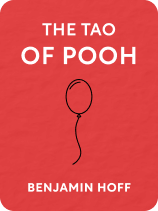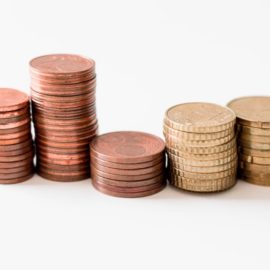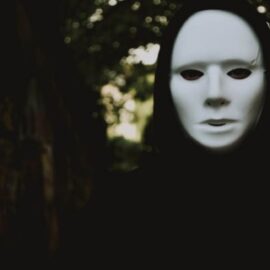

This article is an excerpt from the Shortform book guide to "The Tao of Pooh" by Benjamin Hoff. Shortform has the world's best summaries and analyses of books you should be reading.
Like this article? Sign up for a free trial here .
What is Wu Wei? How can you apply Wu Wei wisdom to your life?
Wu Wei is the element of Taoism known as inaction or allowing what happens to come. Wu Wei wisdom is known in The Tao of Pooh as the Pooh Way.
Read more about Wu Wei wisdom and how you can find it with Pooh and Piglet.
Principle 3: What Is Wu Wei Wisdom?
The Pooh Way uses Wu Wei wisdom. It is one of the fundamental elements of Taoism and most appropriately describes the habits of Pooh. Roughly translated, this principle means “without acting” or acting without expending energy or struggle. What is Wu Wei? Think of it as water in a stream naturally gliding over or around obstacles in its way.
Wu Wei wisdom advises you to acknowledge your Inner Nature and work with the rhythm of life. You expend minimal energy and experience no mistakes because nature does not make mistakes. Mistakes happen when you use your knowledge to interfere with the natural path laid before you.
So, what is Wu Wei wisdom? The Pooh Way means allowing each peg to fit inside its corresponding hole. The action is easy because things are taken for what they are. Conversely, knowledge wants to analyze the shape of the holes and pegs to determine which go where. Cleverness will attempt to find imaginative ways to force pegs where they don’t belong. These actions are those of someone trying too hard to make something work. When you try too hard, you become tense, confused, and uncomfortable. You’re too much in your head, which is exhausting and inevitably ineffective.
A story from the writings of Chuang-tse expresses the benefit of following the natural rhythm of life and the detriment likely in thinking too hard for a solution.
One day, Confucius saw a man who appeared to be drowning in the pool at the base of a waterfall. The man was thrashing about in the rough water. When Confucius and his men went to rescue the man, they found him happy and content on dry land. The would-be saviors asked him how he had survived, and the man replied that he’d learned to forget himself and simply follow the flow of the water. When he did not struggle, surviving was easy.
This is Wu Wei, meaning you simply let things happen in the way the natural order dictates, and they work out whatever way they need to. You may disagree or dislike the result and feel disappointed or resentful at the time. But in hindsight, you will likely realize the necessary path life took in that moment for you to be where you are, doing what you’re doing in the present. Even if you’d tried to end up in the same place on your own, you likely couldn’t have created a better path and might have even made mistakes along the way.
Pooh and Piglet Embody Wu Wei Wisdom
Pooh and Piglet’s birthday presents for Eeyore are good examples of how following the path before you can lead to unexpected satisfaction.
When Pooh discovered it was Eeyore’s birthday, he went home to find a suitable present. Piglet also wanted to give Eeyore something and went home to find something special. Pooh decided the best present was a jar of honey, so he grabbed one and set off toward Eeyore’s house. But along the way, Pooh started to feel hungry. He sat down and was relieved that he’d thought to bring a jar of honey with him. He ate the whole jar of honey before he remembered why he’d brought it in the first place. Instead of panicking, Pooh decided the jar was still a good gift and stopped to have Owl inscribe it with the words “A Very Happy Birthday.”
Piglet had decided to give Eeyore a balloon left over from a previous party. He secured the balloon against his chest to make sure it didn’t fly off and ran all the way to Eeyore’s, wanting to beat Pooh there so it would seem like he’d remembered on his own. His mind was so filled with the gratitude Eeyore would show him that he didn’t see a hole in the ground. He tripped and landed on the balloon, popping it. Piglet was distraught that his present was ruined, but when Pooh showed up with his jar, Eeyore realized the jar was for putting things in and the balloon, now that it was deflated and more manageable, could be kept in the jar. The two gifts complemented each other, and everyone was delighted. This is Wu Wei, meaning inaction was ideal.
There is no way to put the power of Wu Wei meaning into academic terms or a category. It is simply what occurs when you follow the flow of life and your intuition. When things work out in the end, people will say you have psychic powers, but really you were simply sensitive to circumstances. The responsibility to make decisions shifts from you to the natural world. If you can accept what’s happening as the Way and not force your will or disappointment on it, you will learn how to be truly happy.

———End of Preview———
Like what you just read? Read the rest of the world's best book summary and analysis of Benjamin Hoff's "The Tao of Pooh" at Shortform .
Here's what you'll find in our full The Tao of Pooh summary :
- How Winnie-the-Pooh perfectly models the principles of Taoism
- The 6 principles of Taoism reflected in Pooh's adventures
- How to become Winnie-the-Pooh and unlock a magic inside of you






